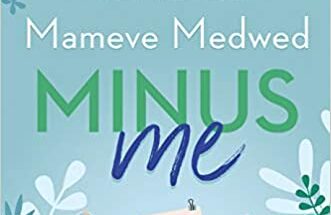 “Why isn’t this in the past tense?” Was the question. “By definition, all stories occur in the past.”
“Why isn’t this in the past tense?” Was the question. “By definition, all stories occur in the past.”
I was stumped. There I was sitting in my writing workshop, years into a novel about which I had thought of absolutely everything, every choice. And in one question this woman shakes me down to my boots. I didn’t know why I had written the entire novel in present tense. Nor did I know that by making this choice I was wading into a hogs-wallow worth of judgment and controversy.
I google. Wait, what? There’s a whole kerfuffle on the use of present tense that’s been going back thirty years or more. How did I miss that? I panic. That never-ending writerly feeling that I’m a complete fraud takes hold of me. The next day, I sit down and rewrite my first chapter in a very unwieldy past tense. But damn, I’m so much more literary in the past tense. All those tenses flitting from my fingers. I even wear my cat’s-eye glasses while I do it.
Then I call my mother-in-law, who happens to be a very accomplished novelist herself. “I never write in the past tense,” Mameve Medwed tells me, a cheerleader for Team Present. “All those tense forms are clunky and old-fashioned when creating a good sentence.”
Hmm.
In 1987, William Gass fired a major shot in the battle over present tense. Gass blamed it on current fads and, interestingly, an increase in the number of women taking writing courses. The implication seems to be that we are too self-obsessed (writing in the first person) and too timid to stake out a claim and say what really happened. Aha! This is why I didn’t know that present tense was a No-No. Most of my writing teachers over the years have been women and were therefore in on the conspiracy. So this being a woman thing doesn’t just include PMS, childbirth and menopause, but an inability to tell a story with the proper amount of authority too? I reread Gass’s article, unsure how much credence to give opinions proffered alongside VCR programming laments.
The fight moves on to a new Millennium. Novels are nominated for the Booker Prize that also happen to be written in the gasp Present Tense. Cue kerfuffling. It’s an absurd fashion we will look back upon in embarrassment. It’s a violation of the very nature of what the novel and writing itself means. Philip Pullman says that writers are trying to meet Hollywood halfway. He notes that present tense loses its impact if used throughout a novel. “But if every sound you emit is a scream, a scream has no expressive value. What I dislike about the present-tense narrative is its limited range of expressiveness. I feel claustrophobic, always pressed up against the immediate.”
Pullman’s point about claustrophobia is a good one. Team Past has more where that came from:
- Past tense allows the writer to manipulate time in more interesting ways.
- The pace in past tense is flexible. It’s easier to jump forward over days or years.
- Past tense allows the Point of View character to be both actor and narrator, thereby granting an additional source of depth and insight into the character.
But they have some less valid points as well. Chief among them is the claim that in the present tense the writer must by necessity include mundane activities in the character’s day. Really? Short stories are often written in the present tense, are all of those stories full of humdrum details? A writer must choose which details are important in a scene regardless of tense. If, in the present tense, we don’t watch the character brush her teeth three times a day we don’t assume she has gum disease. Our minds gloss over the fact. Present tense novels have no more propensity to include the mundane than those written in the past.
Another talking point for Team Past is that the author loses the opportunity to foreshadow effectively. This one, frankly, causes some head-scratching. If foreshadow is intended to increase suspense and we analyze it that way, the tenses come to a draw. After all, in the past tense we know the narrator lived through whatever he was facing in the novel. When the antagonist has a knife to the protagonist’s throat, well, we know he doesn’t cut it. Suspense is reduced. But in the present, the protagonist loses the ability to reflect, I knew the minute he reached into his pocket, it was going to get ugly. A loss, no doubt, but one that perhaps can be compensated for by the immediacy of the present tense.
So, the benefits of the past tense boil down to time manipulation, the separation of narrator and actor, and pacing flexibility. What about those for present tense?
- Present tense is easier to manage. There are twelve forms of tense to use in the past tense, whereas in present there are four. Mameve’s point is true, language is cleaner in the present tense.
- To include a flashback in present tense, a writer can use the simple past. In past tense, a writer has to use past perfect. Flashbacks are just less wordy in the present tense.
- There is a realism to present tense. Movies are frequently cited as cause for the demise of literature into the present tense and for good reason. Authors using the present tense often express the desire for the novel to mesmerize and capture the readers. Present tense adds immediacy to a scene.
- Present tense can add to characterization and tone of the novel. A character who is perhaps not reflective does very well in the present tense. So does a drunk one. Or a frat brother.
The battle between the pros and cons of past tense and present tense seems to be a tie. In that case, it’s probably best to stick with the hundreds of years of novel-writing tradition and go with the stodgy guys, even if they can’t program their VCRs.
I return to my own writing. Why did I choose present tense? Was I unwittingly following a fad? I flip through old stories, pieces of novels. It’s a mix. Some past, some present, each choice made to fit the story, albeit subconsciously. What kind of writer do I think I am, going around making important choices willy-nilly? If I’m going to be a serious writer, I need to write in the Serious Past Tense with lots of serious foreshadowing and rumination.
There’s still a niggling question, however. What were those present tense books that started off the great Booker Prize kerfuffle of 2010? Emma Donahue’s Room. Of course, she’s a woman after all. Timid, no doubt. Unsure of her authority. But Tom McCarthy and Damon Galgut were also to blame. And the year before, Hilary Mantel. Hold on, Wolf Hall was written in present tense? How did I miss that? Mantel also says that when she started writing Wolf Hall she didn’t think about it. “I was writing as I saw it.” Of the present tense, Mantel says, “It is humble and realistic – the author is not claiming superior knowledge – she is inside or very close by her character, and sharing their focus, their limited perceptions. It doesn’t suit authors who want to boss the reader around and like being God.”
David Mitchell is onto this as well, writing the historical novel, The Thousand Autumns of Jacob de Zoet in the present. So are Marlon James and Paul Murray. Not just girls, in other words. Mantel says of the critics who claim Team Present Tense is ruining the novel, “The novel is infinitely capacious, it can handle anything you throw at it.”
I remove my cats-eye glasses. Perhaps tense, like all the other choices in writing a novel is a matter of artistic taste, a decision of which to be aware. Maybe by not worrying about it I landed on something. After all, I didn’t agonize over my choice of protagonist. She was just there, in front of me, asking me to write her and to do it in the close third person. Could the answer of why I chose present tense be as simple as because it’s what felt right? Could there be no right or wrong in the debate, but merely whatever fits your intentions for that individual work?
Then I find one of those not-stodgy, to-live-by-writer-quotes:
“Books let you know what tense they want to be written in.” –David Mitchell.



14 comments